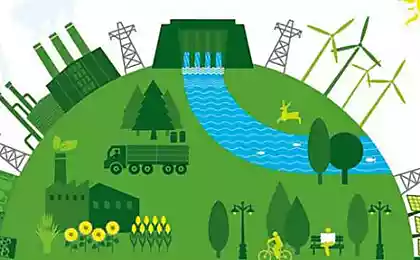241
6 household habits that can cost you dearly
Some household habits seem harmless, but they lead to the fact that your wallet is empty. The day-to-day activities we take on autopilot can imperceptibly drain substantial amounts of our budget. The good news is that by recognizing these financial traps, you can make a difference and save significant money in the long run.

According to World Bank research, the average household can save up to 30% of their monthly utility costs by simply changing some everyday habits. This is equivalent to an additional monthly income per year!
1. Leave electrical appliances on standby
Many of us do not turn off electrical appliances from sockets, but leave them on standby. Televisions, computers, chargers, kitchen appliances – all these devices continue to consume electricity even when they seem to be off. This phenomenon is called “phantom load” or “energy vampires”.
Financial implications:
According to the International Energy Agency, up to 10% of electricity bills in the average household are on standby devices. On a yearly scale, this figure can be a significant amount – from 2000 to 5000 rubles, which literally go nowhere.
How to fix the situation:
- Use network filters with a switch for groups of devices to turn off several appliances in one motion.
- Purchase smart sockets with timer or remote control
- Make a habit of completely disconnecting devices you don’t use.
2. Inefficient use of water
Water is a resource that many of us take for granted, especially in areas where water is not scarce. However, inefficient water habits can significantly increase utility bills, as well as harm the environment.
Typical water waste:
- Taking long showers (more than 10 minutes)
- Unrepaired leaking taps and flush tanks
- Filling a bath instead of using a shower
- Leaving water on when brushing your teeth or washing your hands
- Using a washing and dishwasher when incompletely loaded
A leaky tap can result in the loss of up to 20,000 liters of water per year, which is equivalent to about 2,000-3000 rubles. Multiply this by a few problem taps or a constantly leaking toilet bowl – and the figure becomes impressive.
3. Impulsive food purchases
Visiting a supermarket without a shopping list and on an empty stomach is a direct way to unplanned spending. Studies show that people who make purchases without prior planning spend 20-40% more money.

How to optimize your product budget:
- Make a weekly menu and a list of necessary products
- Don't go to the store hungry.
- Track promotions and seasonal discounts on regularly used goods
- Buy non-perishable products in bulk when it is profitable
- Use apps to track discounts and compare prices in different stores
Proper planning of meals and purchases can save the family budget about 30% of monthly expenses on groceries, which in annual terms is a significant amount.
4. Suboptimal use of household appliances
Many of us don’t think about how we use our home appliances. Meanwhile, some habits can significantly shorten the life of expensive appliances or increase energy consumption.
The main errors in the use of technology:
- Washing machine overload or insufficient loading
- Use of uneconomic modes of operation of technology
- Opening the oven door during cooking (each opening reduces the temperature by 25-30°C)
- Place the refrigerator next to the heat source
- The accumulation of ice in the freezer (increases energy consumption by 15-20%)
According to experts, proper operation of household appliances can extend its service life by 30-50%. Given the cost of modern appliances, this is a significant savings in the long run.
5. Inefficient use of heating and air conditioning
Heating and air conditioning systems are among the most energy-intensive in the household. The reckless use of climate technology can lead to a significant increase in electricity and gas bills.
Common mistakes:
- Installation of too high heating temperature in winter (optimally 20-22 ° C)
- Installation of too low air conditioner temperature in summer (optimally not lower than 24 ° C)
- Heating or cooling of empty spaces
- Lack of thermal insulation of windows and doors
- Blocking heating radiators with furniture
According to studies, each degree above the optimal heating temperature increases energy consumption by 6-8%. Similarly, each degree below the recommended air conditioning temperature increases energy consumption by 3-4%.

6. Ignoring preventive maintenance
Many of us pay attention to appliances and engineering systems at home only when they fail. However, preventive maintenance not only prolongs the life of systems, but also avoids costly repairs or replacements.
What requires regular maintenance:
- Heating systems (annual check before the heating season)
- Air conditioning (cleaning filters monthly, professional maintenance once a year)
- Ventilation systems (checking and cleaning every 2-3 years)
- Water and sewerage (preventive inspection once a year)
- Home appliances (according to manufacturer’s recommendations)
Preventive maintenance can cost 3-5 times cheaper than repair after a breakdown. Moreover, timely maintenance of systems reduces the risk of emergencies that can lead to significant material damage.
Conclusion
Changing household habits is not just a way to save money, but also a way to a more conscious, environmentally friendly lifestyle. By analyzing and adjusting our daily activities, we not only reduce the financial burden on the family budget, but also reduce our environmental footprint.
Start small – pick one habit a week and work on changing it. Gradually, these changes will become a natural part of your life, and the saved money can be used for more important and pleasant purposes than paying excessive utility bills or repairing prematurely failed equipment.
Glossary
Phantom load (energy vampires)
Electricity consumption of devices that are in standby mode or turned off, but remain connected to the power grid.
Smart sockets
Electric outlets with remote control functions, schedule programming, power consumption monitoring and automatic disconnection of connected devices.
Energy efficiency
Rational use of energy resources, achievement of economically justified efficiency of use of existing energy resources at the existing level of technology and technology development.
Impulsive shopping
Unplanned purchases of goods or services, made under the influence of the moment, emotions or marketing incentives, without prior planning and evaluation of the need.
Preventive services
Planned regular activities to inspect, clean and maintain equipment and systems to prevent their failure and extend their service life.
Heat insulation
Protection of structures, premises, buildings and structures from undesirable heat exchange with the environment with the help of special materials and technical solutions.
10 reasons to stop rushing to find yourself and build a successful career
How to make quick and better decisions























